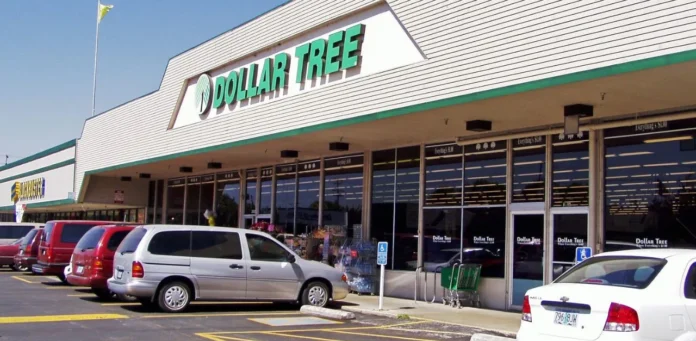Dollar Stores Get Serious About Enhance Product Lines with Major Private Label Investments
In recent years, dollar stores have turned their attention to expanding their confidential offerings, aiming to attract a broader customer base and increase profitability That strategy is this business comes at a time of changing consumer behavior and intense competitive pressures. Here’s a detailed look at how dollar stores are increasing their private label investment and what it means for retail.
The private label surge: Strategic development
The changing storefront
Dollar stores have traditionally been known for being expensive and convenient. But with the growth of retail, these stores are increasingly recognizing the value of private labels. Private label products, which are designed by one company to sell under another company’s brand, give dollar stores the opportunity to have exclusive products at competitive prices action that not only sets them apart from other retailers, but also it also fosters customer loyalty.
Economic drivers
Several economic factors drive dollar stores to invest heavily in private companies. First, continued economic uncertainty requires consumers to search for value more than ever. Private brokerage firms generally offer the same qualities as the national brands but at lower prices, appealing to budget-minded customers. In addition, private brokerage firms often offer traders a substantial advantage relative to domestic brands, allowing them to make economically savvy choices.
Special methods for private label extensions
Product quality and innovation
One of the most important strategies used by dollar stores is to improve product quality. Historically, private labels were often considered inferior to national brands. To combat this perception, dollar stores invest in research and development to ensure that their private label products meet or exceed national consumer trends This says complex quality control measures and innovation to meet the needs of different customers.
Branding and Marketing
Effective branding and marketing are of utmost importance in the success of private label products. Dollar stores are adopting creative branding techniques to develop their strong private labels. This includes creating attractive packaging, creating unique brand names and launching targeted marketing campaigns. By creating a recognizable and trusted brand, dollar stores can successfully compete with national brands.
Extends the production range
Dollar stores are expanding their individual labels to appeal to more people. This expansion includes categories such as food, household goods and personal care products. By offering a wider variety of products, dollar stores can cater to customers’ wants and needs, increasing their market share.
Benefits of Private Label Investments
Customer Loyalty and Retention
Investing in non-public labels helps greenback shops construct more potent customer loyalty. When consumers find that a store’s personal label products offer true value for money, they’re more likely to go back. This repeat business is important for sustaining long-term increase. Additionally, unique products which can’t be located in different shops provide clients a purpose to pick one store over every other.
Competitive Advantage
Private labels provide dollar stores with a great aggressive aspect. Unlike countrywide manufacturers which are available throughout diverse outlets, personal labels are specific to the store that sells them. This exclusivity can appeal to clients who’re searching out precise merchandise and might differentiate greenback shops from their competitors.
Higher Profit Margins
Private labels normally provide higher income margins than country wide brands. Since retailers have extra control over the manufacturing and distribution of personal label merchandise, they are able to lessen expenses and growth profitability. This monetary benefit is specifically important within the enormously aggressive retail surroundings wherein margins are regularly slim.
Challenges in Private Label Expansion
Consumer Perception
One of the principle demanding situations in personal label growth is converting patron notion. Despite upgrades in satisfactory, a few clients nevertheless view non-public labels as inferior to national brands. Overcoming this bias requires steady advertising and marketing efforts and superb customer reports to construct trust and credibility.
Supply Information
Managing private label offers can be difficult. Retailers need to ensure they have reliable suppliers and efficient logistics to maintain availability and quality. Any disruption in the supply chain could adversely affect customer satisfaction and sales.
Compliance with the law
Private label products comply with regulations and standards, which may vary by region and by product. Ensuring compliance can be resource intensive and requires ongoing monitoring and adaptation to regulatory requirements.
The future of Dollar Store private label
Technical Communication
As technology advances, dollar stores are using it to enhance their individual vouchers. This includes using data analytics to understand consumer preferences, artificial intelligence, and integrating digital marketing strategies for broader audiences Technology also plays an important role in supply chain of management, helps retailers optimize inventory and reduce costs.
Sustainability and Ethical Sourcing
Consumers are increasingly prioritizing sustainability and ethical sourcing in their purchasing decisions. Dollar stores are responding by incorporating sustainable practices into their private label production processes. This includes using eco-friendly materials, ensuring fair labor practices, and reducing carbon footprints. By aligning with consumer values, dollar stores can strengthen their brand reputation and attract socially conscious shoppers.
Collaboration and Partnerships
Collaborating with manufacturers, suppliers, and even other retailers can help dollar stores enhance their private label offerings. Partnerships can provide access to new technologies, resources, and expertise, enabling dollar stores to innovate and improve their products. Strategic alliances can also help in expanding market reach and overcoming logistical challenges.
Dollar stores are making significant strides in their private label investments, driven by the need to adapt to changing consumer behaviors and competitive dynamics. By focusing on quality, branding, and product range expansion, they are well-positioned to attract a diverse customer base and achieve sustainable growth. However, they must navigate challenges such as consumer perception and supply chain complexities to fully capitalize on the benefits of private labels. As technology and consumer values evolve, dollar stores that remain agile and innovative will likely continue to thrive in the competitive retail landscape. For more related news, click here.

